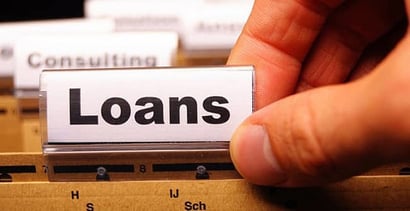

Once you have bad credit, it might seem like you’ll never be approved for another loan again.
While this is partially true, there are a number of things you can do to put yourself in a position where you will be approved. They’re not always instant, cheap or guaranteed, but they always work.
1. Apply for a loan regardless of your credit score
Many people think their credit is so bad that they can’t possibly be approved for a loan. Don’t fall prey to this mindset.
Before you move on to the other types of loans listed below, check out your credit score and credit reports. Once you have this information handy, check the requirements for any loan before applying.
If you can’t find them, call the lender and discuss the qualification criteria. In some cases, you won’t get a definitive answer. However, this shouldn’t stop you from applying for at least one or two loans before you assume your credit is too poor to qualify for a traditional line of credit.
You may be surprised to find out you can get approved for a credit card or loan with reasonable interest rates and no fees, even though you feel your credit score is embarrassingly low.
2. Use a secured loan
Secured loans are those where you provide a form of collateral as a guarantee you’ll repay your loan as agreed. There are several forms:
- Secured loans with cash
- Secured loans with property as collateral (such as a car or real estate)
- Secured credit cards
In all cases, the value of whatever you provide as collateral will almost always need to be equal to the line of credit you’re applying for.
There are some exceptions to this rule, though. If your credit is above 600, you may only be required to provide collateral that equals a portion of the total value of the line of credit.
If your score is below 500, you may be required to provide collateral that is equal to more than the value of the line of credit. In most cases, if the value of your collateral is greater than that of the line of credit, you’ll usually be reimbursed the difference if you find yourself unable to fulfill your obligations.
However, secured credit cards are usually the exception to this rule, and missing even a single payment can result in the full forfeiture of your security deposit, as well as the closing of your line of credit.
If you’ve used any form of property as collateral and fail to make your payments, then the bank will seize your asset.
If it’s sold for less than the amount you owe, you’ll be required to come up with the difference. If it’s sold for more, the bank is usually required to give you the difference.
“Improving your credit score now will
help you open a line of credit in the future.”
3. Use a co-signer
Cosigners are typically required for those with no established credit history or those with bad credit.
Typically speaking, your interest rates will be based on your credit score, even if your cosigner has absolutely perfect credit. This is known as “the cost of bad credit,” and there’s little you can do to get around it.
When choosing a cosigner, it’s best to find someone with very good credit to increase your chances of being approved for the loan. If your cosigner’s credit score is only marginally higher than yours, then it’s unlikely you’ll be approved at all.
Many people make the mistake of asking someone with worse credit than their own to cosign a loan, even though it may seem like common sense to avoid this. When you do, you’re going to be denied the loan.
4. Seek out bad credit loans
There are a number of banks that specialize in providing loans to those with bad credit. The interest rates are always high and the penalties for missing a payment are always severe.
However, if you know you’re able to be responsible with your commitments, they can serve as a platform from which you can escape the penalties of having bad credit.
Many of these lenders don’t even run a credit check. They automatically assume the worst. Before you turn to them, be sure to try working with a cosigner or opening a secured line of credit if you can afford it.
The long-term expense of either of those options is almost guaranteed to be lower than a loan designed for those with bad credit.
5. Boost your credit score
Any action you can take to improve your credit score will help you open a line of credit in the future. In some cases, you can boost your score by a few hundred points in just a few short months, opening the doors to approval for loans with favorable terms.
If you need some help raising your credit score, consider contacting a credit repair agency.
Photo source: incometherapy.com.
Advertiser Disclosure
BadCredit.org is a free online resource that offers valuable content and comparison services to users. To keep this resource 100% free for users, we receive advertising compensation from the financial products listed on this page. Along with key review factors, this compensation may impact how and where products appear on the page (including, for example, the order in which they appear). BadCredit.org does not include listings for all financial products.
Our Editorial Review Policy
Our site is committed to publishing independent, accurate content guided by strict editorial guidelines. Before articles and reviews are published on our site, they undergo a thorough review process performed by a team of independent editors and subject-matter experts to ensure the content’s accuracy, timeliness, and impartiality. Our editorial team is separate and independent of our site’s advertisers, and the opinions they express on our site are their own. To read more about our team members and their editorial backgrounds, please visit our site’s About page.




